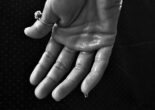Are you taking the leap and want to study Japanese? You might even be at an impasse with your studies. Let me give you some great tips that are going to help you improve your learning journey.

Let’s Learn Japanese!

You could either be someone who is looking to start their Japanese learning language experience, someone who is struggling as you study, or you may just be someone who is hoping to learn more tips about how to study Japanese. I’ve got you, let me offer you some tips that have helped me and other people, and that will hopefully help you. First things first, I hope you are excited to start what will hopefully be a very fun adventure:). It takes 28 days to start a habit. So as we start this journey, please give yourself 28 days of doing these tips before you call it quits.
I said it before in previous articles, but one of my hundreds of jobs is to teach English. So my credentials are that I’ve been an English teacher for well over six years altogether, I’m a graduate student, and I’m also studying Japanese. Honestly though? I’m just a girl trying to offer some tips that I’ve seen and that I’ve implemented along the way.
How Are You Studying?

Now first things first, I want to ask you how you are studying. I noticed that a lot of my students can’t answer this question or have never thought about it before. I’d like for you to take at least five minutes to sit and think about how you study best. How you study is going to determine the trajectory you take the advice I give.
Ask yourself:
How do you learn? When do you find yourself retaining information and when do you find yourself losing it? Are you more of a visual learner where you need to see things? Or are you the kind of person who needs hands-on experience, which in this case would be actually speaking and utilizing the information that you are in the midst of learning?
I really suggest whipping out a notebook, or maybe even buying a new one. I always get hyped to write in notebooks I buy from the 100 yen store. It’s silly, but the notebooks motivate me. Start writing your current study methods in it as you read this article. Not just how you learn, but what you think you should change and do differently in order for you to effectively study from here on out.
The Psychology of It All

OK, *cracks knuckles* time to bring my psychology degree into this. I’m totally kidding, but there is a LOT of psychology that goes into studying. I’ll just speak a little bit about it~
There are the obvious statements I’m going to make and then just small things you can do to kind of trick your brain into studying more. I fully encourage you to think about studying Japanese in a positive manner. Never think it’s that you have to study or that you’re going out of your way to do it. Knowledge is always a beautiful thing and it is such a luxury. So it’s always that you get to study and that you are lucky to study Japanese.
Now I’m going to ask you to think about these few things before we get into the tips that I break down below.
When you study, what is the setting like? What time are you trying to get all the information in your brain? Is it in your room, or the library, or even on the bus? Are you studying the same topic for hours on end, or are you alternating what you learn?
Take another five minutes to think about this and write down your answers!
Let’s Break It Down! Our Top 4!

There are four things that you need to focus on when it comes to Japanese, or specifically, what you need to be focusing on when you’re learning any language honestly. Aside from the obvious that we will get into with the other articles about hiragana, katakana, and kanji, you need to focus on listening, reading, writing, and speaking. There’s no way around it. And yes, there’s no way around the writing either. I know it sounds a bit crazy because everyone just texts, but just hear me out. Even Japanese people have this problem~ Don’t believe me? Go ask a Japanese person to write the kanji for “beautiful”, 綺麗. About 50% of the time they will tell you they don’t know how to write it because they’re always using their phone to text it. Impress them by showing them YOU can write it.
NOW ask yourself, are you spacing out how you learn/study these four things and are you trying to study and improve these areas on a daily basis?
Study Methods and Habits

I have hundreds of tips, but I don’t want to overwhelm you and I just want to give you a few of the basics that are easy for you to do. I’ll sprinkle in a few more tips and tricks as I conduct this full series.
1)Pomodoro Effect
Please please please implement the Pomodoro study method when you’re studying, it is one of the best ways to help you retain the information that you’re learning when you are studying. It implements breaks in order to help you improve your ability to focus and not feel as tired when it comes to studying. Please use this cute little Pomodoro timer below when you study. When I was a high school teacher, I used this timer often and the students loved it.
2) Change Your Environment Up
If you find that you are not getting enough studying done or that you’re not being as productive as you could be, it might be because of your study environment. Are you studying in a well-lit area or one that has natural sunlight coming in? Please make sure you’re not studying in bed because your body associates your bed with sleeping. If you can, don’t listen to music as you’re studying, try to listen to natural noises or use this noise frequency that I will attach below. Noise frequencies are great for serving as background noise without distracting you. You can look into the study of pink, brown, and green noises in your free time, they’re great!
.https://www.youtube.com/watch?v=BV5WwiouvJs&t=18145s
If you’re not comfortable with that, you can also use the noise function on your iPhone if you have one. A lot of people don’t know about this function, but you can actually play natural noises like rain on your phone. It’s naturally programmed into iPhones these days.
3) What’s That Smell?
This is such a small thing, but if you’re trying to retain information, you should definitely be using a scent. What I suggest you do is choose a scent like mint or something natural, or even your favorite smell that you can put on when you’re studying. Then when you’re taking an exam, like the JLPT, or even when you’re going out, you can spray that same scent on your body to help recall information easier.

4) Review Review Review
I literally just reprimanded a student of mine today for not reviewing even though he has an exam coming up soon. How do you expect to retain information if you are not reviewing every day or most days throughout the week? I know it seems like a hassle, but you need to review at least 25 minutes a day. Do it while you’re on the toilet or on the bus. Easy, right? Any way for you to get that information in!
There are so many great study apps and flash card apps for you to use, you honestly have no excuse to not be using them.
I believe I may have talked about this before in a previous article that I will link here about phone apps for studying Japanese, but I will also link a notecard app that you can use below. It’s good because you get to input information directly into the app which will help you study more.
https://apps.apple.com/app/id1434981148
5) Confidence Is Key
This is such an obvious statement, but just have the confidence to go out there and try the Japanese that you’re learning out on people. Whether it be with a waiter as you’re giving them your order, or if you’re feeling gutsy, talking to someone at a park or open area. I can guarantee you that you will not sound as crazy as I do when speaking Japanese. You have absolutely nothing to lose.
I’m not the best at Japanese, but I love communicating with people and people can tell I’m enthusiastic about communicating with them, so it makes up for my inability to speak fluently even after seven years of being here. I kid you not, I just recorded a p.v. for a new product and when I was speaking with the directors, I said (in Japanese), “So you want me to CHOOM CHOOM CHOOM on the phone and the dansu dansu dansu ?” as I tapped around. They laughed, but sound effects helped me get my point and also lightened up the room. Plus, I’ve always loved the idea of sounding like an alien. I imagine that I sound like Starfire from Teen Titans or Zaida (from the Down To Earth WEBTOON) about 95%. I’m having fun with it, so I’m just going to keep doing it as I improve~
It’s Just the Start, Baby!

Again, as we start the series, the first step to improving is understanding your study habits.
You’re probably wondering how I can talk about these tips while in the same breath say that my Japanese heavily consists of sound effects haha. Well, I am going to be on this journey with you for the next 28 days and I’ll really give it my all instead of passively studying like I usually do. I’ll give an update about everything in the end~ This way you’ll feel like you’re not alone on your journey to learn and we will really be in it together.
Think about these tips before checking out my next article about hiragana and katakana, which will be linked here. And remember, give yourself at least 28 days of trying this before you give up. I have no doubt that you’ll succeed, so believe in yourself.



